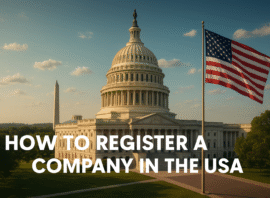How to start a cosmetics business in Thailand
by indesoThailand’s beauty industry is one of the fastest-growing in Southeast Asia. The country is actively developing both its export and domestic markets for cosmetics. The popularity of organic and natural products, strong demand from tourists, and sustained interest in self-care culture all make starting a business here particularly attractive.

According to the Thai Cosmetic Manufacturers Association, the domestic cosmetics market is valued at over $8.1 billion, and Thai cosmetics exports grow by 7–10% annually. Foreign entrepreneurs find an ideal environment in Thailand for:
-
Launching their own manufacturing operations;
-
Opening boutiques and beauty stores;
-
Selling online within Thailand;
-
Exporting cosmetics abroad;
-
Developing and bringing products to market under their own brand.
Step 1: Choosing a Business Model
It is important to note that local production in Thailand can provide an additional advantage for exporting products to ASEAN countries — under the Free Trade Area agreement, a zero customs duty applies. This makes Thailand especially attractive for entrepreneurs targeting regional markets.
Before registering a business in Thailand, you need to determine the format you plan to operate in:
Cosmetics Manufacturing:
-
Local or contract manufacturing (OEM/ODM)
-
Producing under your own brand or for other brands (white/private label)
Import and Distribution:
-
Supplying foreign cosmetics to the local market
-
Requires licensing from the Thai FDA
Retail:
-
Online store (via Shopee, Lazada, or your own website)
-
Offline store or mall corner (particularly relevant in Bangkok, Phuket, Chiang Mai)
Franchising:
-
Localizing an existing brand
-
Expanding through partner outlets
Key considerations at this stage:
-
Competition in the niche
-
Demand for a specific category (skincare/makeup/organic)
-
Logistics requirements domestically and for export
-
Certification and product registration in Thailand
-
Target audience (tourists, locals, expats)
-
Current beauty trends and consumer preferences in the selected market
It is also important to consider Thai consumer preferences — for example, high demand exists for skin whitening products, lightweight textures, sun care lines, and products with natural ingredients. These factors can significantly influence formula development and product positioning at launch.
Step 2: Company Registration and Legal Structure
To conduct legal business in Thailand, a foreigner must register a legal entity.
Primary legal structures:
| Form | Description | Foreign Ownership | Features |
| Thai Limited Company (Co., Ltd) | The most popular business form | Up to 49% | Requires Thai shareholders, but control can be protected through a shareholders’ agreement |
| BOI-Supported Company | Supported by the Board of Investment | Up to 100% | Suitable for manufacturing, export, and innovative projects. Offers tax incentives and visa support |
| Representative Office | Представительство иностранной компании. | 100% | Not allowed to engage in commercial/trading activities |
| Free Zone LLC | Company registered in a Free Economic Zone | Up to 100% | Can conduct manufacturing and export. Exempt from VAT and customs duties within the zone. Ideal for contract manufacturing and logistics centers |
Selecting the appropriate legal form depends on the company’s goals, industry, and the way it plans to operate in the Thai market. This is not only a legal requirement but also a strategic decision that affects business control, tax burden, ability to attract investment, and operational flexibility.
At this stage, it is important to consider:
-
The possibility of full or partial foreign ownership;
-
Incentives and support from the BOI for manufacturing and export projects;
-
Restrictions for foreign company representative offices and branches;
-
Benefits of operating in free economic zones, including tax and customs exemptions.
Step 3: Obtaining the Necessary Licenses and Permits
Any activity related to the production or sale of cosmetics in Thailand requires approval from the regulatory authorities.
List of required documents and licenses:
-
Cosmetic product certification from the Thai FDA
(mandatory before selling or importing) -
Retail/wholesale trade license
-
Permit for the use of production facilities (if manufacturing is local)
-
Trademark registration with the Thai IP Office
(important for protecting your brand within the country)
Important: Non-compliance with labeling, composition, or packaging requirements can result in fines or product recalls.
Step 4: Renting Premises and Setting Up Infrastructure
Once you have decided on your business format and completed legal registration, the next important step is finding the right commercial premises. Choosing the right location can play a decisive role in the success of your cosmetics project, especially if you plan offline sales, open a boutique, or set up a production facility.
In Thailand, the choice of location depends on your target audience and business model. For retail, it is important to consider tourist traffic, the presence of competitors nearby, and accessibility for customers. For manufacturing or warehousing, the focus shifts to convenient logistics, transport access, and compliance with sanitary standards.
It is important to remember that not every property in Thailand can be used for commercial purposes — zoning regulations must be considered, and official permission to conduct business at the chosen location must be obtained. Mistakes at this stage can lead to administrative fines or even closure of the premises.
Recommended locations for business:
-
Bangkok — business hub, high flow of tourists and expats
-
Phuket / Samui / Krabi — popular for premium beauty services and boutiques
-
Chiang Mai — developing market for organic and conscious-consumption products
When selecting premises, it is necessary to obtain a permit for commercial activities. Other factors to consider include:
-
Zoning regulations
-
Parking availability
-
Competitor density
-
Foot traffic
-
Visibility from the road/street
Step 5: Finding Suppliers and Managing Logistics
It is crucial to define the optimal model for working with manufacturers and partners, as well as to establish reliable logistics.
Options include:
-
Contract manufacturing in Thailand
(for example, in Samut Prakan, Chonburi, or eastern regions of the country) -
Importing from South Korea, Japan, Europe
(requires an importer license and product certification) -
Working with distributors under a white-label arrangement
Choosing a reliable logistics scheme is a critical step: warehouse storage, delivery across Thailand, and managing returns must be planned carefully.
Step 6: Hiring Staff and Visa Support
Thailand has strict labor laws, especially regarding foreign employees. Violations, even unintentional, can lead to severe penalties — including deportation and future business restrictions.
For a foreign owner or manager to legally work in the Kingdom, a business visa and work permit are required. Employers must comply with several requirements regarding company structure, the number of local employees, registered capital, and other factors.
Additionally, as your business grows, you will likely need to hire local professionals: sales staff, administrators, logisticians, and marketers. It is essential to understand the local business culture, labor contract practices, and market salary expectations.
Indeso Consulting provides full support at this stage — from selecting the appropriate visa type to obtaining a work permit — and offers guidance on adapting your HR strategy to local realities.
Step 7: Marketing and Sales Channels
Having a quality product and a legally registered business is only half the battle. To secure a niche in a highly competitive market and achieve stable revenue, it is essential to build an effective sales and marketing strategy. In Thailand, promoting cosmetic products has its own nuances: consumer behavior, brand trust, visual presentation, and even packaging preferences all play a key role.
It is especially important to understand that in Thai consumer culture, visual perception, real customer reviews, and influencer recommendations are crucial. That is why many international cosmetic brands adapt their campaigns to local trends, actively engage local bloggers, and manage social media accounts in Thai.
Online sales cannot be ignored either. Marketplaces like Shopee and Lazada have become the first points of contact with brands for millions of buyers. At the same time, offline formats remain effective, particularly in tourist areas where people make impulsive purchases and seek local beauty experiences.
Developing a marketing strategy should take into account local preferences, product specifics, target audience, seasonality, and competitor presence.
For example, Thai consumers show high interest in skin-whitening products, sunscreens, and lightweight skincare. They trust both local brands and major international companies with a strong reputation and localized approach. Russian products are currently perceived neutrally and require efforts to build awareness, trust, and strong positioning.
Pre-launch market research is a key step that is often underestimated. It helps determine:
-
The most competitive price level
-
Your main competitors (e.g., popular Korean or Japanese products)
-
The most effective channels — offline or digital
Without this data, even a great product may fail to reach its audience.
Effective marketing channels:
-
Instagram, TikTok, and YouTube — strong influencer impact
-
Shopee and Lazada — marketplaces with wide audiences
-
Facebook groups — local communities of Thais and expats
-
Offline advertising — in tourist areas and shopping centers
-
Collaborations — beauty salons, hotels, wellness centers
Successful brands actively use localized content and hire Thai ambassadors to build trust with the local audience.
Potential Risks and How to Avoid Them
-
Lack of knowledge of local legislation
Solution: Work with licensed consultants -
Incorrect product registration
Solution: Obtain certification before import or local production -
Product does not meet consumer preferences
Solution: Conduct market research before entering the market and adapt the product to the target audience -
Cultural differences and mindset
Solution: Hire local staff and provide soft skills consultations -
Competition with major brands
Solution: Clear positioning, a unique product, and an organic marketing strategy
Conclusion
Launching a cosmetic business in Thailand offers an opportunity to enter a highly competitive but promising market. With proper preparation, legal compliance, and a localized marketing strategy, your brand can secure a stable position and become profitable within the first year.
To minimize risks and avoid mistakes, especially in an unfamiliar environment, it is crucial to conduct comprehensive market research at the start. This will help you understand how consumers perceive your segment, what factors influence brand choice, and how to adjust your market entry strategy.
Ready to get started? Submit a request for a free consultation on the Indeso Consulting website, and we will help turn your idea into a functioning business in Thailand..
Popular
Related articles
Markets we study













